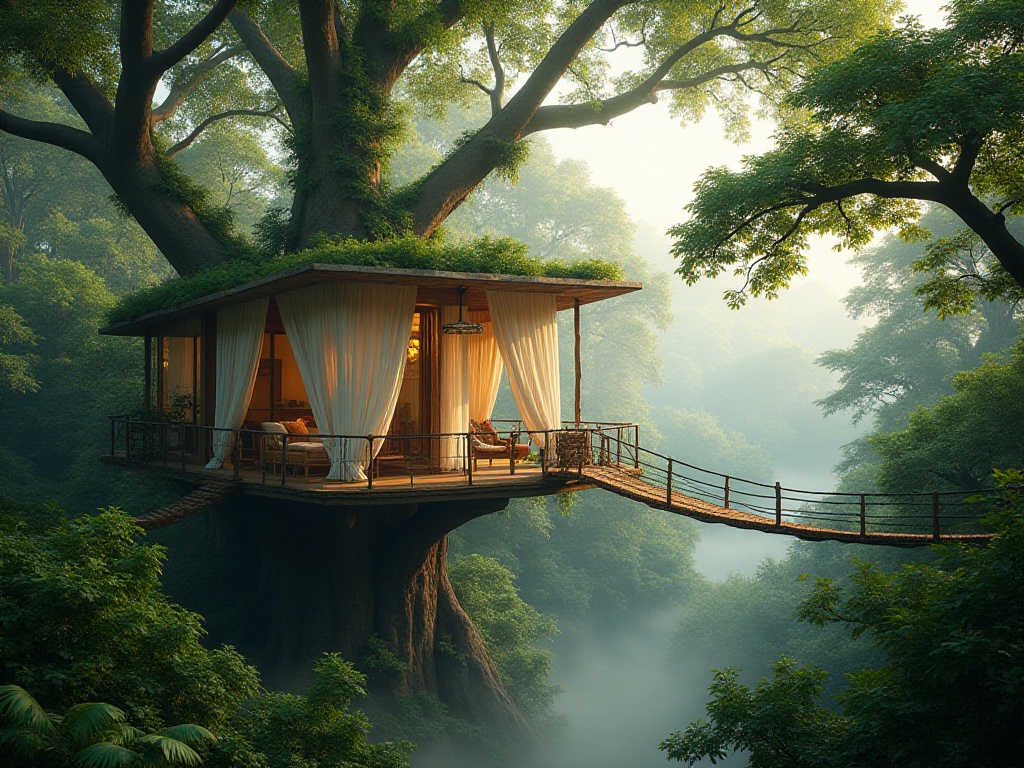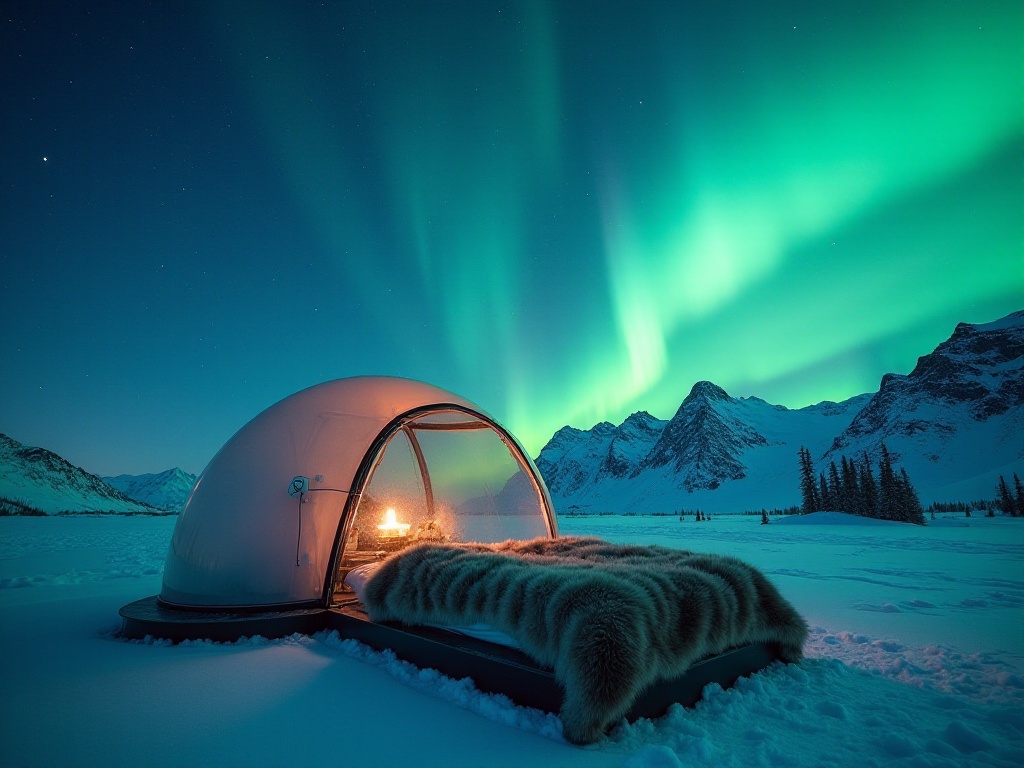
Pre-Journey Musings
I remember my first trip to Europe in 2018, as a newly graduated poor student with an accommodation budget of only 40 euros per night. Having just received my first job offer, I was eager to treat myself, but looking at my meager savings, I could only shed silent tears while gazing at those luxury hotels along the Champs-Élysées. Looking back now, it was precisely because of the limited budget that I experienced more interesting accommodation options, met all kinds of travelers, and created many unforgettable memories.
The Backpacker Era
As a classic "budget traveler," I set my first stop at a youth hostel in central Paris. It was a hostel called "Le Village," with an 8-bed mixed dorm for 25 euros per night. Though the space was indeed cramped, the overall hostel atmosphere was fantastic. In my room, there was Hans, a photography student from Germany; Mike, a surf instructor from Australia; Min, a Korean exchange student; and a Canadian couple, Paul and Sarah.
I remember on the first night, we had an impromptu international food festival in the communal kitchen. Hans brought German sausages, Mike contributed kangaroo jerky, Min made a large pot of army stew, and I cooked a big batch of tomato meat sauce pasta. The kitchen was filled with various food aromas as we ate and chatted, discussing everything from our hometown cuisines to life aspirations. The atmosphere was as lively as a large international friendship party.
There, I met Emma, the Australian girl who left the deepest impression on me. She was on a one-year gap year travel, having spent three months in India where she sustained herself by teaching yoga. Emma told me that by the Ganges in Varanasi, she would wake up at 4 AM every morning to practice yoga with locals and tourists. That feeling of connection with the world made her feel more authentic than ever before. Listening to Emma's stories, I realized for the first time that travel isn't just about checking off tourist spots, but more importantly about experiencing different ways of life.
The hostel had many interesting facilities, like the message board in the common room covered with postcards and sticky notes from travelers worldwide. Some were looking for ride-sharing partners to Nice, others were exchanging foreign coins, and some were sharing their travel tips. Every evening, the common room would host different themed activities, such as movie nights, board game parties, and wine tasting events. Though the accommodation was basic, this vibrant and creative atmosphere was something five-star hotels couldn't match.
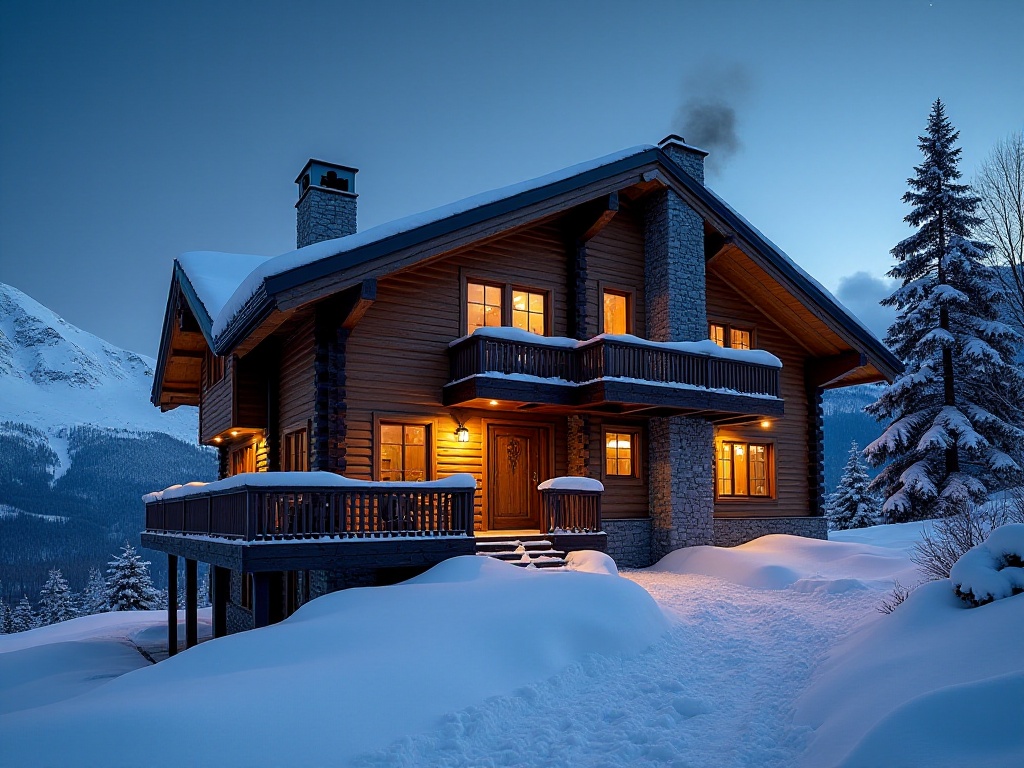
The Couchsurfing Experience
From Paris to Amsterdam, on Emma's recommendation, I tried "couchsurfing." Through the Couchsurfing platform, I met my host - Peter, a Dutch photographer. He was an artistic youth with a beard who owned an artistically atmospheric apartment in central Amsterdam. The walls were covered with photos he'd taken while traveling the world, and the living room shelves were filled with books in various languages and handcrafts from around the globe.
Peter lent me his living room couch. While this accommodation style was free, it required strong social skills and adaptability. You need to learn to fit into the host's life rhythm while maintaining appropriate boundaries. Fortunately, Peter was an excellent guide. He took me cycling through Amsterdam's streets and showed me many places tourists don't know about.
We went to his favorite underground jazz bar, where the music and atmosphere transported me back to the 1950s. We also visited an artist community in the suburbs, where buildings were converted from abandoned shipping containers, each painted with vibrant graffiti, becoming studios and exhibition spaces for young artists.
Most memorable was Peter treating me to authentic Dutch pancakes. Not the commercialized ones in tourist areas, but his grandmother's secret recipe. We spent an afternoon busy in his kitchen, where he taught me how to mix the batter and control the heat. That cozy feeling was just like being at home.
Through couchsurfing, I also met many local young people. They took me to underground music festivals, local farmers' markets for the freshest cheese and seafood, and showed me the real Amsterdam nightlife. These experiences made me deeply realize that the most precious aspects of travel aren't the attractions and food, but the genuine exchanges between people.
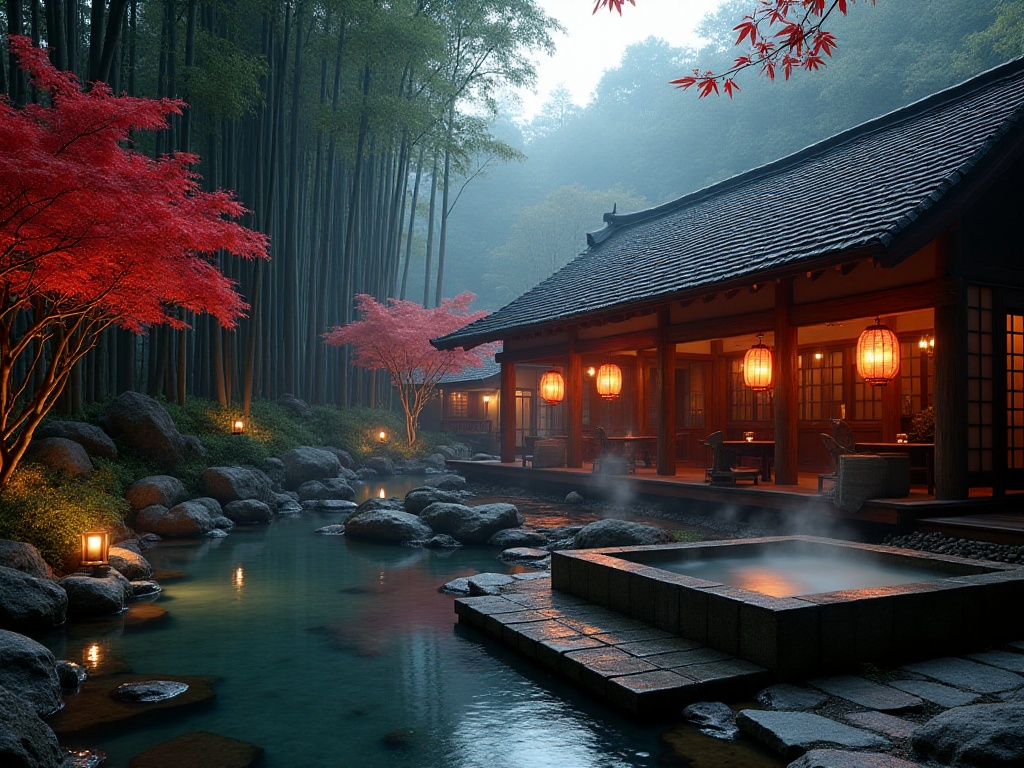
Work Exchange Travel
Inspired by Emma, I later did a work exchange at a vineyard in Tuscany, Italy. This was a family farm situated on a hillside, passed down through three generations. The farm owner Marco was a typical Italian uncle, passionate and animated when speaking. His wife Maria was an excellent chef, and their son Lorenzo was studying winemaking techniques to take over the family business.
Every morning at 5 AM, I had to get up to help tend the vineyard. Morning in Tuscany was surreally beautiful, with mist shrouding the rolling hills and dew drops glistening on the grape vines in the morning light. The work wasn't easy, requiring checking the vines' growth conditions, clearing weeds, and pruning branches when necessary. But this labor helped me truly understand the complete process of wine from soil to glass.
During lunch breaks, Maria would always prepare hearty Italian home cooking. She taught me how to make authentic Italian handmade pasta - kneading, rolling, and cutting - each step requiring ultimate patience and focus. In the evenings, the whole family would gather for dinner, drinking their homemade wine and sharing stories. Marco would talk about his younger days learning winemaking in France, Maria would share food stories from various Tuscan towns, and Lorenzo would discuss his new attempts at modern winemaking techniques.
There were other work exchangers from different countries at the farm. There was Yuki, an illustrator from Japan traveling around Europe seeking creative inspiration; Pedro, a musician from Brazil whose bossa nova guitar made Tuscan nights more enchanting; and John, a retired teacher from New Zealand who wanted to experience different lifestyles in his later years.
Our group of strangers from around the world, brought together by our love for wine and Italian culture at this farm, gradually became close friends. On weekends, we would explore nearby medieval towns together, stroll along narrow cobblestone streets, buy fresh fruit and cheese at open-air markets, or simply sit at plaza cafes watching the leisurely pace of local life.
The work exchange experience taught me that real travel isn't about rushing through attractions, but about slowing down, integrating into local life rhythms, and exchanging honest work for the most authentic experiences. Those two weeks in Tuscany not only taught me many practical farming skills and cooking techniques but more importantly helped me understand the Italian attitude toward enjoying life.

Boutique Accommodation
After starting work and improving my financial situation, I began trying some unique guesthouses and boutique hotels. The boutique hotel called "The Hoxton" where I stayed in London last year completely changed my perception of hotels. This was a hotel converted from an old factory, maintaining its original industrial style while adding modern design elements.
My room's theme was "Creative Studio," with vintage print artwork on the walls, a desk converted from an old workbench, bedside tables made from old toolboxes, and even light fixtures created from recycled parts as art pieces. The room also had a vinyl record player, and the hotel provided a selection of classic jazz records, making one feel as if they'd traveled back to London's Industrial Revolution era.
The hotel's public spaces were also interestingly designed. The lobby was converted into a co-working space, where you could often see local creatives working or meeting. The ground floor cafe served creative drinks developed by young baristas rather than traditional English afternoon tea. The basement was a multipurpose cultural space, regularly hosting small concerts, art exhibitions, and creative markets.
Most impressive was the hotel's community interaction program. They regularly invited local artists for residencies to create installation art in the hotel's public spaces; collaborated with local craftspeople to provide workshops for guests; and organized food tours, leading guests to explore local specialty restaurants and markets.
This new type of boutique hotel is no longer simply a place to stay, but a living space that integrates art, culture, and social interaction. They often choose locations in vibrant creative districts, providing travelers with in-depth local experiences through unique design and rich cultural activities.
During my time in London, I also experienced a boutique guesthouse in Notting Hill. This was a Victorian terraced house where the owners had converted their attic into cozy guest rooms. The rooms retained their original beam structure, paired with Nordic-style minimalist furniture, creating a comfortable and stylish atmosphere.
The owners were an art-loving couple who prepared hand-drawn maps of the surrounding area for guests, marking their favorite cafes, bookstores, antique shops, and parks. Breakfast wasn't traditional English breakfast, but healthy meals made with seasonal ingredients, with different surprises every day.
Though these boutique accommodations are not cheap, they offer more than just a bed - they provide a lifestyle experience. They showed me that accommodation can become the most exciting part of travel, rather than just a necessary evil for solving the sleeping problem.
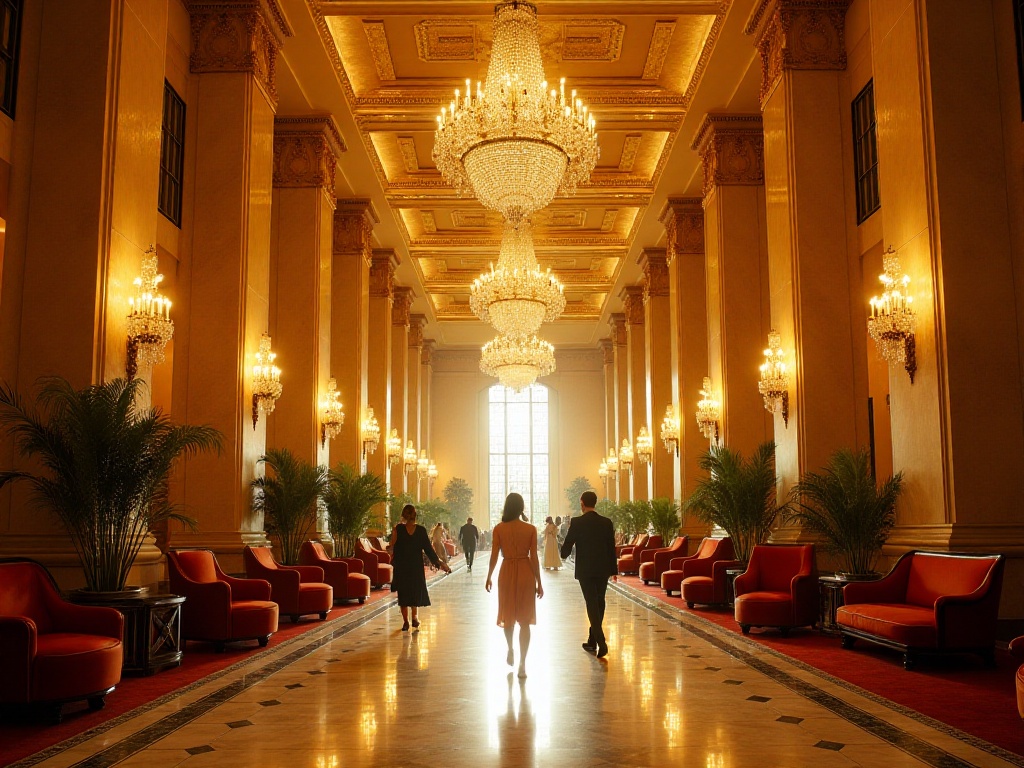
Future Outlook
With the development of the sharing economy, accommodation styles continue to innovate. The recently popular "digital nomad" concept is interesting, working remotely through the internet while living in shared apartments around the world. I know a friend who lives this way - he's a freelance designer who changes cities every month. He says this lifestyle allows him to continuously gain creative inspiration while meeting interesting souls from around the world.
Shared apartments typically provide comprehensive office facilities and social spaces, and organize various activities to promote interaction between residents. Some places even offer professional career development courses and entrepreneurship guidance. This new lifestyle is redefining the concept of "home," allowing people to find a sense of belonging anywhere in the world.
Additionally, sustainable travel is gaining increasing attention from young people. Some eco-hotels and environmentally friendly accommodations are emerging, using renewable energy, eco-friendly materials, and organic ingredients, making travel more environmentally friendly and responsible.
Technological development is also changing the accommodation experience. For example, in smart hotels, you can control all room devices with your phone, learn about the surrounding environment through AR technology, and even "visit" rooms through VR before checking in. In the future, metaverse technology might make virtual travel possible, allowing us to experience accommodations worldwide without leaving home.
Looking back at my accommodation evolution, from budget-priority hostels to quality-seeking boutique hotels, from socially-focused couchsurfing to in-depth work exchange experiences, each accommodation style has brought me different experiences and stories. These experiences have taught me that accommodation choices actually reflect one's travel attitude and life philosophy.
For me, the best accommodation isn't necessarily the most expensive, but rather places that let you feel the local life atmosphere, meet interesting people, and create unforgettable memories. Now when I travel, I choose different accommodation styles based on different purposes: hostels for socializing, boutique hotels for quiet time, work exchange for in-depth experiences, and couchsurfing for saving money.
So here's the question: If you could choose again, which accommodation style would you choose to start your journey? Would it be comfortable but monotonous chain hotels, lively but basic youth hostels, or unique but expensive boutique guesthouses? This choice might determine what kind of adventure your journey will become.
Next
Budget-Friendly Hostels in Southeast Asia: A Solo Traveler's Guide
Ah, Southeast Asia! The land of vibrant street markets, ancient temples, and pristine beaches. But for the solo traveler, it's so much more – it's a playground of self-discovery, cultural immersion, and unforgettable connections. And at the heart of this solo adventure? Hostels, my friends. These budget-friendly havens are the unsung heroes of the backpacker trail, offering not just a place to rest your head, but a launchpad for epic journeys.
From Hostels to Luxury Hotels: A Backpacker's Global Accommodation Guide
A comprehensive guide to accommodation options, covering traditional hotels, boutique hotels, B&Bs, self-catering units, as well as specialty lodging like mountain cabins, resorts, and alternative options including home exchange and work exchange programs
The Great Escape: Hotels Bask in Summer's Radiant Glow
In a world once silenced by the echoes of empty lobbies and vacant rooms, a new symphony of rolling luggage and excited chatter is rising. The hotel industry, long battered by the storm of a global pandemic, is finally seeing the sun peek through the clouds. As we stand on the precipice of a travel renaissance, local hotels are witnessing a surge in occupancy rates that's nothing short of miraculous.
Next
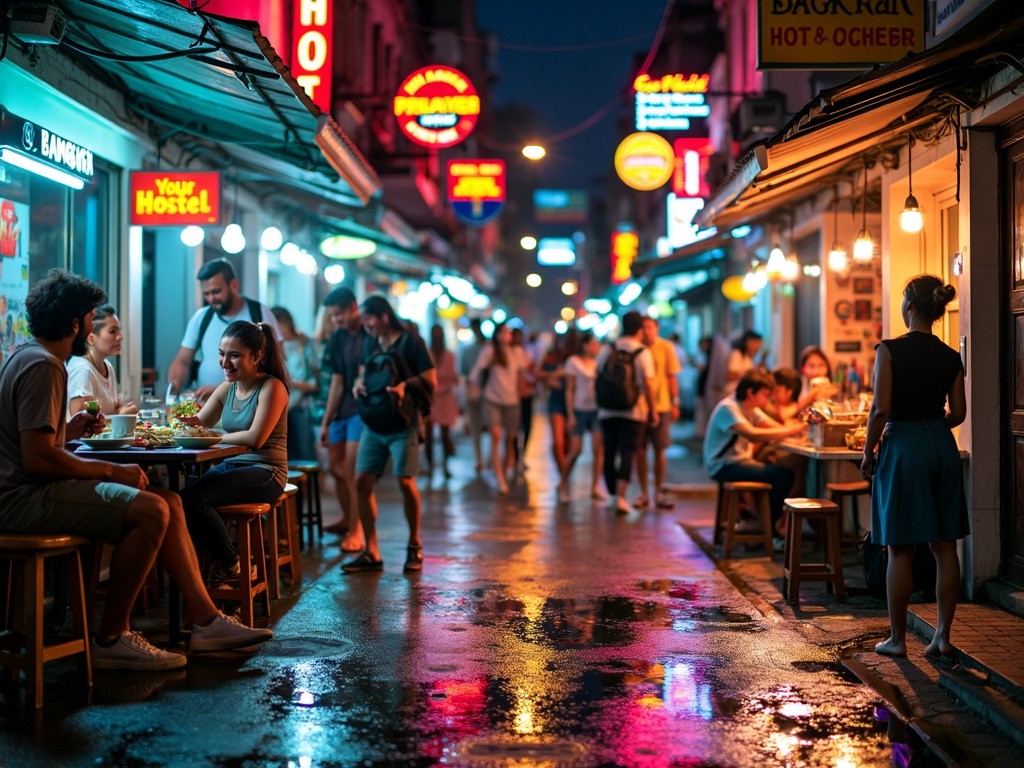
Budget-Friendly Hostels in Southeast Asia: A Solo Traveler's Guide
Ah, Southeast Asia! The land of vibrant street markets, ancient temples, and pristine beaches. But for the solo traveler, it's so much more – it's a playground of self-discovery, cultural immersion, and unforgettable connections. And at the heart of this solo adventure? Hostels, my friends. These budget-friendly havens are the unsung heroes of the backpacker trail, offering not just a place to rest your head, but a launchpad for epic journeys.
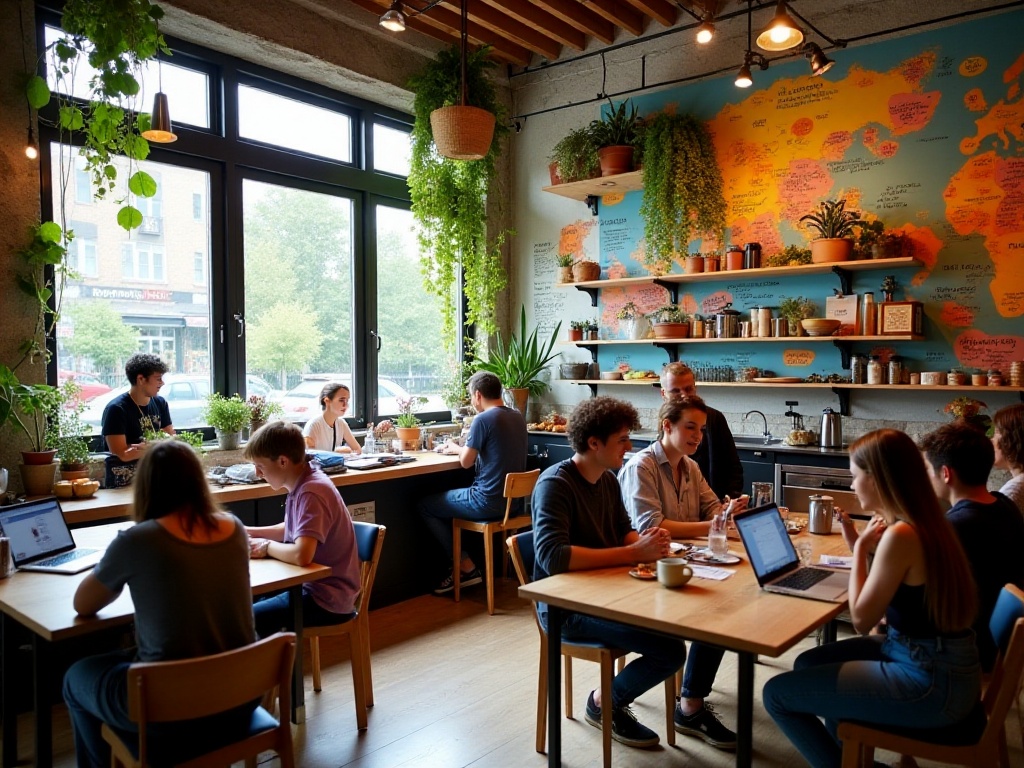
From Hostels to Luxury Hotels: A Backpacker's Global Accommodation Guide
A comprehensive guide to accommodation options, covering traditional hotels, boutique hotels, B&Bs, self-catering units, as well as specialty lodging like mountain cabins, resorts, and alternative options including home exchange and work exchange programs
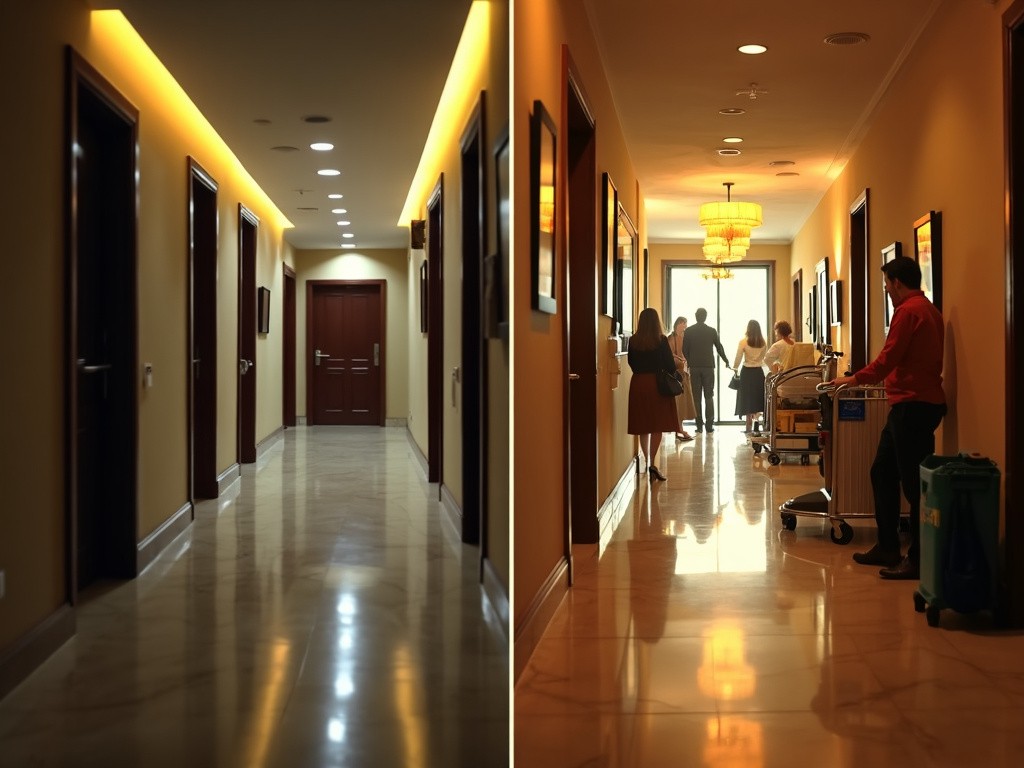
The Great Escape: Hotels Bask in Summer's Radiant Glow
In a world once silenced by the echoes of empty lobbies and vacant rooms, a new symphony of rolling luggage and excited chatter is rising. The hotel industry, long battered by the storm of a global pandemic, is finally seeing the sun peek through the clouds. As we stand on the precipice of a travel renaissance, local hotels are witnessing a surge in occupancy rates that's nothing short of miraculous.

